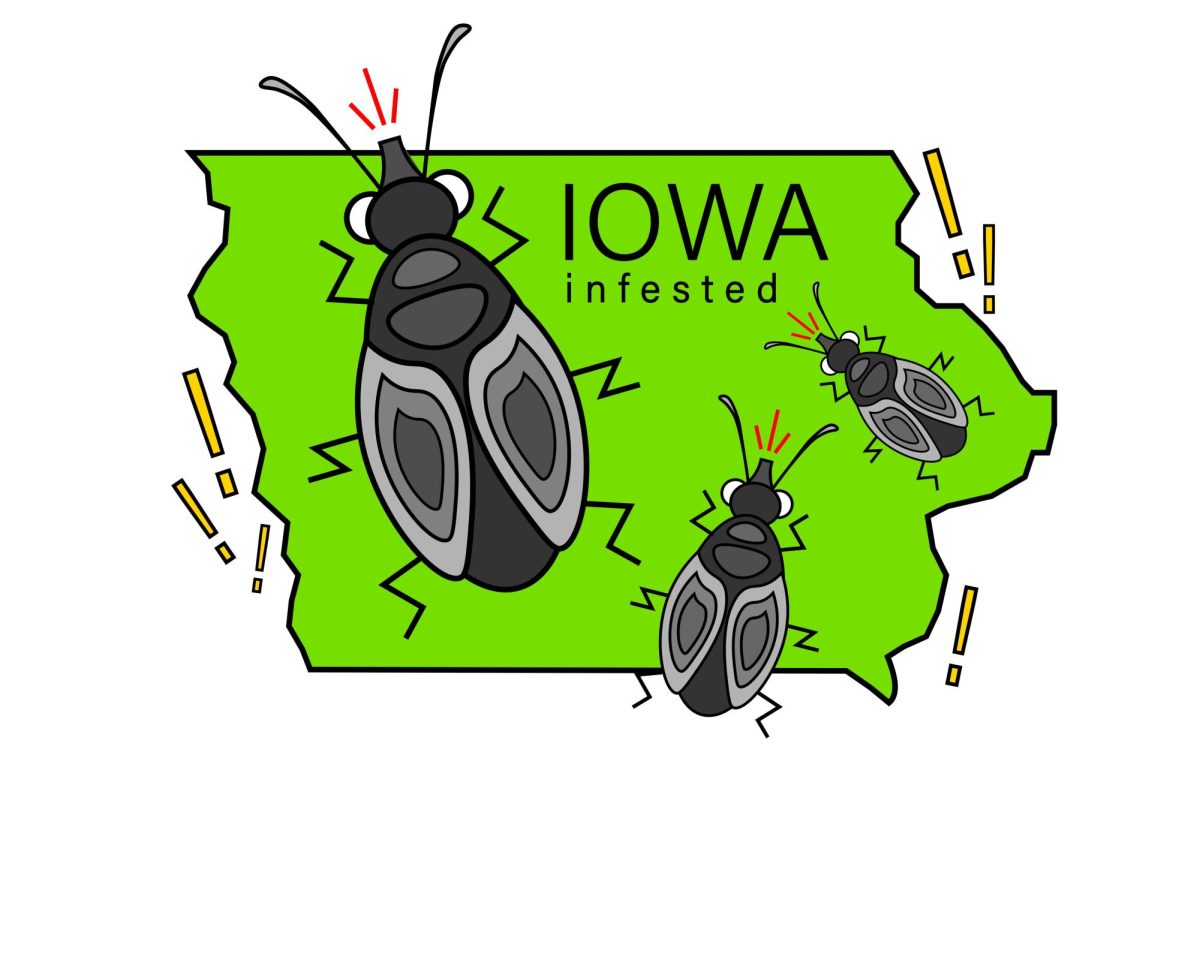In February of this year, The S&B investigated whether the flock of crows that frequents campus each winter is an ill omen or just a natural phenomenon. While the crows have not yet returned in full force, another creature has plagued the campus in recent weeks — tiny biting bugs. The S&B set out to determine if these bugs represent a curse on campus or, like crows, they are just a part of the natural order of things in Grinnell.
Perhaps indicating a bad omen, students recount horror stories of bug attacks: “I hate them so much,” said Hannah Roth `27. “Every day at practice when [the bugs] were out and about, I would actually get attacked by swarms.”
When asked what she would say about the bugs, Dayana Garcia `26 said, “I would say ‘what the f**k is wrong with you?’ to the bugs.” Garcia also said that she had gotten numerous bug bites over the previous weeks.
Associate Professor Idelle Cooper, biology, said the bugs are called orius insidiosus, commonly known as insidious flower bugs. She said that the name “insidious” refers to their bite, which is from a beak that they use to poke their prey, like aphids and sap from plants, and suck out fluid. “Which hurts a lot more than it seems like it should,” Cooper said.
However, Cooper also said that the bugs do not feed on humans. “We are not the source of anything for them, so it’s kind of just like, we’re there and they’re hungry, but they’re not getting any nutrients from us,” she said.
Additionally, Cooper said that while the insidious flower bugs are always around in small numbers, they may have recently become more prevalent due to warmer temperatures and because of the harvest season. “They’re often in crops like soybeans and corn, and so once the harvest begins, then they’re jumping ship and going elsewhere.”
Contradicting the curse theory, insidious flower bugs are native to this region of Iowa and are thought to be beneficial, as they eat a lot of other small pests, “Which is interesting given that they’re called insidious and we don’t enjoy them at all,” she said.
Despite the purportedly treacherous nature of these bugs, Cooper said she does not believe that they indicate a curse on Grinnell. “Well, depends on your feelings about the dual effects of climate change, being it’s warmer right now, and the effects of being surrounded by agriculture. So, I guess you could spin that.”




















































